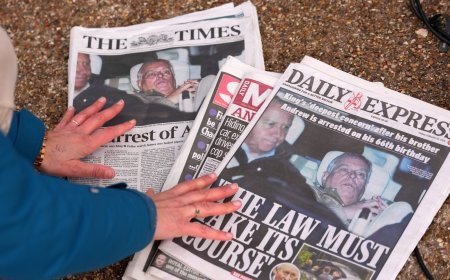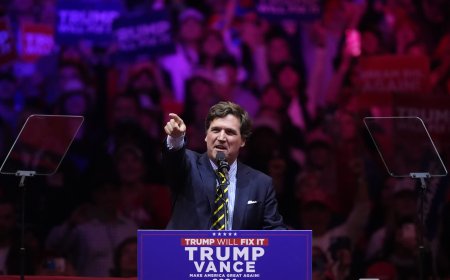Elon Musk Misunderstood the Film “Office Space.” Now He’s Decimating the Federal Workforce


Last week’s New York Times investigation into how mega-billionaire Elon Musk created Department of Government Efficiency [DOGE] and executed “a radical takeover of the federal bureaucracy” included the odd tidbit that he “had a DOGE T-shirt emblazoned with a quote from one of his favorite movies, ‘Office Space’: ‘What would you say you do here?’”
The line from the Mike Judge-directed movie—delivered by one of the two soulless management consultants named Bob eager to impose layoffs—clearly influenced the subject line of Musk’s email to federal employees, “What did you do last week?” The email directive was paired with a social media post claiming, “Failure to respond will be taken as a resignation.” (After several agency leaders told employees not to respond, Musk sent around another email titled, “What did you do last week? Part II.”)
Musk appears to have colossally misinterpreted Office Space as a celebration of cruel corporate culture instead of a vicious satire of it. Now Musk is channeling the spirit of the Bobs in hopes of imposing the biggest layoff of all time, which would devastate not just hundreds of thousands of employees but also the basic functionality of the federal government.
In the 1999 film, the Bobs are hired by Initech, a software company, to interview its employees and determine who should get fired. A customer service representative, Tom Smykowski, is sweating at the omen of layoffs and panics. After Tom bumbles through his initial answers, one of the Bobs asks the famous question, at which Tom loses his cool: “Look, I already told you. I deal with the goddam customers, so the engineers don’t have to! I have people skills! I am good at dealing with people, can’t you see that?! What the hell is wrong with you people!”
Tim’s performance does him in. One of the Bobs later sums up Tim with “He’s useless” and puts his name in the layoff pile.
To view the scene as honoring layoffs by management consultants as heroic acts of efficiency requires ignoring the rest of the movie.
Other qualified software engineers are fired and replaced with recent graduates or outsourced to Singapore. “The usual deal,” says one consultant. When the management consultants learn that a worker was meant to be fired five years ago but was never told nor removed from the payroll, they correct the error but refuse to inform the employee. “We fixed the glitch,” says a Bob, “so it will just work itself out naturally.” Meanwhile, the movie’s protagonist, Peter Gibbons, gets promoted after bragging to the Bobs about his disinterest in working and his elaborate work avoidance strategies—which the consultants deem proof of his “upper management” potential.
The movie never suggests that Initech is efficient and productive following the hatchet job. Nor is Initech treated as uniquely terrible. The passive-aggressive behavior and fixation on meaningless tasks from Initech’s management that fueled Peter’s disloyalty are paralleled at the nearby Chotchkie’s restaurant, a send-up of casual-dining establishments and their forced cheerfulness.
Peter—unimpressed by his promotion—rebels against Initech and the work itself and carries out an embezzlement scheme with the help of his two laid-off friends. But upon realizing they would likely get caught, Peter’s conscience returns and prepares to take the fall. Before he expects to go to prison, he patches things up with his estranged girlfriend Joanna (Jennifer Aniston), a former waitress at Chotchkie’s. After bemoaning his inability to be satisfied by his work, Joanna shows him the way forward: “Most people don’t like their jobs, but you go out there and you find something that makes you happy.”
If Musk spoke to civil servants instead of sending snide emails, glibly firing thousands of workers, and threatening more layoffs, he would likely find many people who did find something that made them happy, people who weren’t avoiding work but taking pride in their work.
Last month, a civil servant of the Office of Personnel Management, using a pen name, wrote for Slate about her dismay at her agency becoming the tip of the spear for Musk’s layoff massacre in violation of its purpose: “We serve as human resources for the rest of the federal agencies, but unlike HR at a private company—where HR really works for your boss and not for you—our agency actually does work for the American people and the public servants who serve them.”
A retired Internal Revenue Service agent wrote an open letter to Musk for Odgen, Utah’s Standard-Examiner, about what’s being lost:
I answered phone calls for five years from taxpayers in need of help, all of them with a fraction of your wealth. It was a very worthy assignment and I believe I helped thousands navigate issues over the years. I will be the first to admit, the job can be complicated by bureaucracy; every day, it complicated matters for me. I can willingly admit that, as an operation manager, it felt as though it should have been easier for me to let people go on occasion. It should have been easier for me to do many things—but I know now, more than ever, why those standards and processes exist: An overbearing executive branch may try to gut a necessary civic institution with politicos, all without even understanding our jobs.
Musk isn’t hearing such sentiments because he doesn’t want to listen. He is maniacal about brutally shrinking government as an end to itself. The Bobs had far more management private-sector consulting experience than Musk has in government operations, which is zero unless you count the largesse of massive federal contracts. And the Bobs at least went through the trouble of talking to employees before deciding whether to fire them. Musk’s impersonal email missives are simply excuses to justify preconceived mass firings.
Musk may think he’s the embodiment of Office Space, but insofar as that’s true, it’s because he blindly embodies its villains’ worst traits. He’s more closely following the spirit of another Judge film: Idiocracy.














































